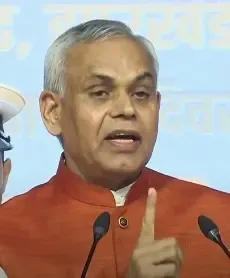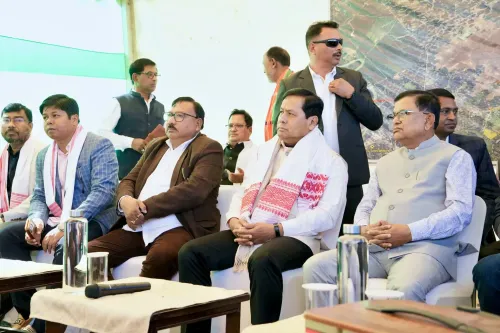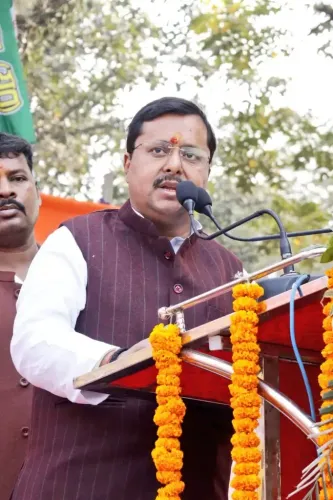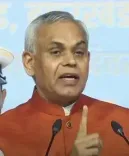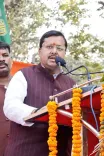Why is TN CPI(M) Calling for Mass Participation in the July 9 Strike Against the Centre's Anti-Labour Policies?
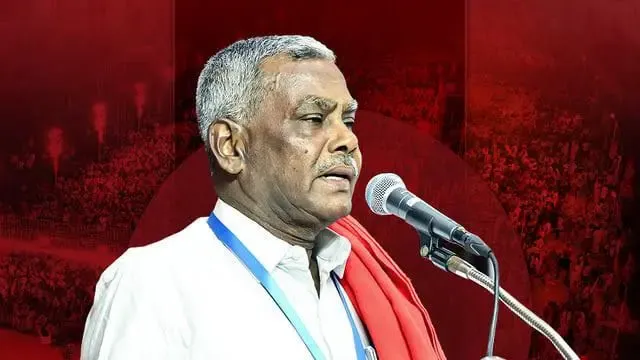
Synopsis
Key Takeaways
- Mass participation is crucial for the success of the strike.
- Reform rollback is a primary demand to protect workers' rights.
- Unity among workers is essential for a strong message to the government.
- Democratic values are at stake, emphasizing the significance of this collective action.
- Public support can amplify the impact of the strike.
Chennai, July 8 (NationPress) The Tamil Nadu state secretary of CPI(M), P. Shanmugam, has urged both workers and the general populace throughout Tamil Nadu to engage actively in the nationwide general strike set for July 9.
This strike has been convened collaboratively by central trade unions and sectoral federations to protest against a variety of policies instituted by the BJP-led government. In a vehement statement, Shanmugam emphasized that the central strike seeks to compel the government to retract what he terms as “anti-worker” labour reforms.
Foremost among the demands is the immediate annulment of the four labour codes enacted by the government during its administration. “These codes jeopardize the rights and safeguards of workers and were introduced without significant consultation with trade unions,” he asserted.
The strike further demands the reinstatement of the Old Pension Scheme, the enforcement of minimum wages for all worker categories, and the abolition of policies that facilitate the privatization of the power sector.
Shanmugam specifically lambasted the Electricity (Amendment) Bill, alleging it is crafted to transfer control of the power sector to private corporations, which would ultimately disadvantage both workers and consumers.
Additional critical demands include guaranteeing 1.5 times the production cost for agricultural products, safeguarding public sector enterprises from disinvestment, augmenting budget allocations for the Mahatma Gandhi National Rural Employment Guarantee Scheme (MGNREGS), and implementing robust measures to control the escalating prices of essential goods.
Shanmugam remarked that while protests specific to sectors have been occurring nationwide, the July 9 strike embodies a collective initiative by the entire working class to resist the government’s policy framework.
“This united resistance is not solely about defending the rights of workers and trade unions; it also encompasses the protection of democratic principles and the opposition to corporate-led governance,” he stated.
He called upon party members, trade unions, farmers’ organizations, and the broader public to come out in droves to ensure the strike’s triumph. “A powerful message of solidarity and resistance must be conveyed to the Centre,” he concluded.


